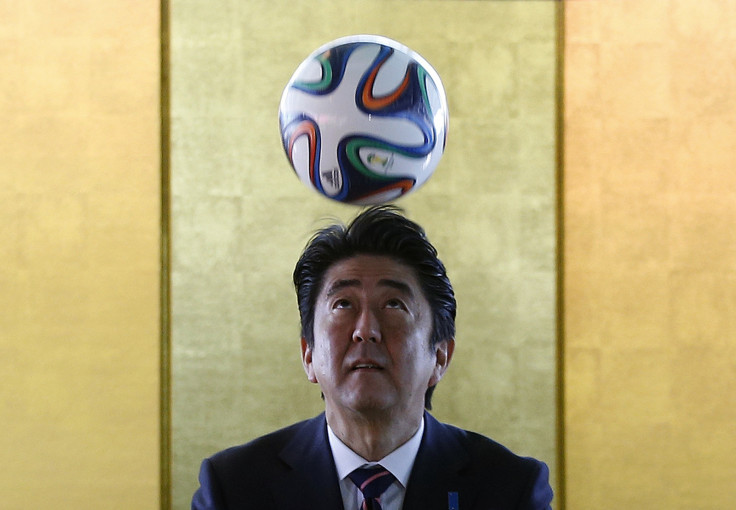Japan's PM Shinzo Abe Annoys China and South Korea Over WWII Shrine

Japanese prime minister Shinzo Abe's act of sending a ritual offering to a Tokyo war shrine has angered China and South Korea who harbour painful memories of Japan's action during the war, according to a Japan Today report.
Abe drew protests from China and South Korea when he visited the shrine last December. This year he decided against visiting the shrine, but still drew the neighbours' ire.
Abe pledged Japan's commitment to world peace at a ceremony in Budokan attended by Emperor Akihito and Empress Michiko.
Around 83 members of the Diet paid their respects at Yasukuni and more than 100 sent aides.
The 145-year-old Shinto shrine honours 2.5 million citizens who died in World War II and includes 14 war criminals such as General Hideki Tojo, who authorised the attack on Pearl Harbor.
Speaking on the 69th anniversary of Japan's surrender at the end of World War II, Abe said: "Here, before the souls of those who fell on the battlefields thinking of their homeland and concerned about their families as well as the souls of those who perished amidst the destruction of the war and those who lost their lives in remote foreign countries during the aftermath of the war, I offer my heartfelt prayers for the repose of their souls."
Criticising Abe's offering, Chinese foreign ministry spokeswoman, Hua Chunying, said in a statement: "The Yasukuni shrine is a symbol and spiritual tool of Japanese militarism."
"Only when Japan earnestly faces up to and deeply reflects on its history of aggression and completely makes a clean break from militarism, can it be possible for Sino-Japanese relations to achieve a healthy and stable development."
China's Xinhua news agency said in a commentary: "One who forgets and denies history does not deserve a future. It has become a matter of urgency for the current Japanese leaders to truly reflect upon the lessons of history so as to avert a risky future."
China and Japan are embroiled in a bitter row over islands in the East China Sea.
Easing on its postwar pacifist doctrine by allowing weapons export and deploying Japanese troops abroad has not gone well either with its neighbours, particularly, South Korea, or its own public as shown by a slump in recent polls.
© Copyright IBTimes 2025. All rights reserved.





















